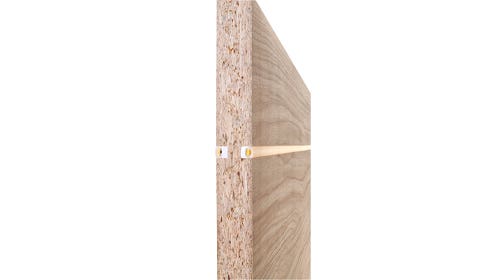Report says illegal logging is declining
Efforts to curb illegal logging have been extensive and had a considerable impact in the last decade, according to a report from a leading international organization. {loadposition position10} Chatham House,…
Efforts to curb illegal logging have been extensive and had a considerable impact in the last decade, according to a report from a leading international organization.
{loadposition position10}
Chatham House, home of the Royal Institute of International Affairs, is an institute for the debate and analysis of international issues that was founded in London in 1920. In July, the institute released a report, "Illegal Logging and Related Trade: Indicators of the Global Response." This in-depth study of 12 producer, processing and consumer countries demonstrates that actions taken by governments, civil society and the private sector during the last 10 years in response to illegal logging and related trade have paid off.
The countries receiving "report cards" are Brazil, Cameroon, Ghana, Indonesia, Malaysia, China, Vietnam, the United Kingdom, United States, Netherlands, France and Japan. Here are a few excerpts from the report cards of several of the countries and their respective levels of illegal logging:
United States
- Estimated U.S. imports of illegally sourced wood products almost doubled between 2000 and 2006, driven by a growth in imports of wood furniture made in China from illegally sourced wood.
- Imports fell by 24 percent between 2006 and 2008; a result partly of the global recession and partly the reduced illegal timber content in imports from China, in turn the result of reduced illegal logging in countries from which China sources timber. New import controls implemented in mid-2008 have also begun to have an impact.
- A higher proportion of U.S. wood-product imports is illegally sourced than those of Great Britain, France or the Netherlands and this proportion has continued to rise.
- Seventy-six percent of the U.S.?s imports of illegally sourced wood now arrive indirectly via third-party processing countries, up from 32 percent in 2000. This has made cleaning up supply chains more challenging than for other consumer countries.
Brazil
- Wood-balance analysis suggests that illegal logging in the Brazilian Amazon has declined by 50 to 75 percent since 2000. Most of the reduction occurred in the last five years and is closely correlated with a similarly dramatic decline in deforestation.
- Experts surveyed about Brazil had the strongest perception of improvement of the five producer countries.
- Improved laws and regulations and greater enforcement were important factors in reducing illegal logging.
- Wood-balance analysis suggests that around 34 percent of harvesting in the Brazilian Amazon is still illegal, but surveyed experts believed it to be much worse (72 percent of production).
Indonesia
- Wood-balance analysis indicates that the illegal log harvest in Indonesia has fallen by 75 percent since its peak in 2000, but it still represents around 40 percent of timber production.
- Log smuggling to China has fallen by 92 percent since 2004.
- Experts surveyed recorded the second largest improvement after Brazil among the five countries.
China
- China's imports of illegally sourced wood increased dramatically from 2000 to 2004, but by 2008 had declined 16 percent from its peak, largely owing to the reduced supply of illegal logs from Indonesia and Burma.
- Illegally sourced imports per capita and as a percentage of total imports have also declined since 2004. Imports of illegal logs from Indonesia have fallen 92 percent since 2004.
- Nevertheless, China remains the world's largest importer of illegal wood by volume and 20 percent of overall imports are still estimated to be of illegal origin.
Cameroon
- Illegal logging in Cameroon has declined by about 50 percent since 1999. Most of the reduction occurred in the first part of the 2000s and all is related to industrial production for export - small-scale illegal logging for domestic markets appears to have increased.
- Experts believed that on average around 35 percent of production continues to be sourced illegally, a considerably lower figure than in Brazil, Ghana or Indonesia.
Vietnam
- Vietnamese imports of illegally sourced wood tripled between 2000 and 2007 and remained steady in 2008. Vietnam is the only one of the seven importing countries studied where imports have yet to show any significant decline.
- With 17 percent of imports estimated to be illegally sourced, Vietnam's wood supply chains are slightly cleaner than those of China.
The study was conducted by Sam Lawson and Larry MacFaul. For information, visit www.chathamhouse.org.uk
This article originally appeared in the September 2010 issue.







